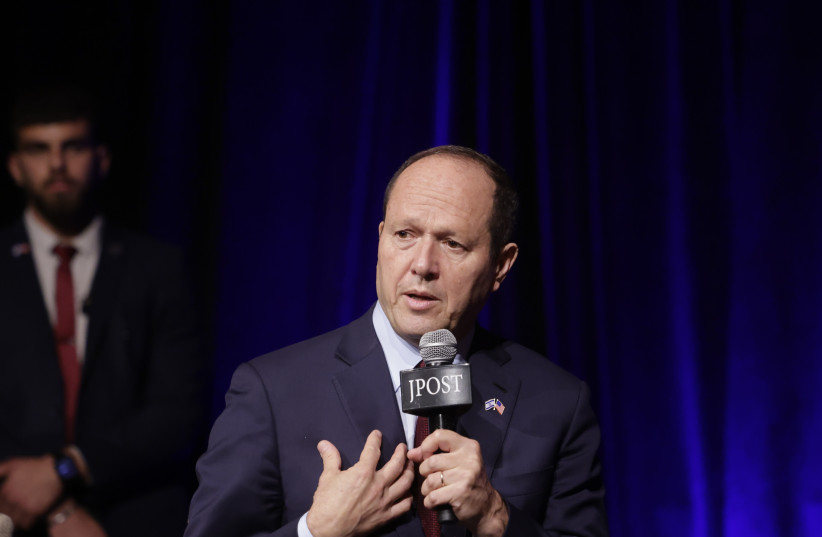The cabinet approved an amended budget for 2023 on Monday night, but it was not approved unanimously. The five National Unity Party cabinet ministers opposed the amended budget, because it still included the allocation of coalition funds for uses not related to the war.
But the National Unity Party was not alone in opposing the budget. Innovation, Science, and Technology Minister Ofir Akunis abstained, and Economy Minister Nir Barkat announced on Tuesday morning that he too had voted against it because he said it was damaging to the economy.
“A government that cuts costs in the industrial sector, growth, the periphery, small and medium businesses, and capital investment sends a message of opposition to economic growth,” he said. “I hope that by the time the vote reaches the Knesset, they will have rethought this path. We cannot lose the economic battle.”
He added that as a member of the government, he supports its policies as long as they make sense.
“But there is no sense in cutting NIS 500 million for workplaces in Kiryat Shmona, Sderot, Ofakim, the Gaza Envelope, and the Galilee,” he said. “More than that, taking the costs cut from the periphery and giving them to hi-tech? Not on my watch. I believe they have the will to solve this and it is solvable.”

Shouting match in the Knesset
On Tuesday morning, KAN reported a shouting match between Barkat and Finance Minister Bezalel Smotrich during the meeting, with Smotrich telling Barkat that he doesn’t know what he’s talking about.
Smotrich and Barkat have been at odds regarding Israel’s financial plan for the war since the beginning. When the Finance Ministry presented its aid plan for businesses affected by October 7 and the war, Barkat criticized it and presented his own plan. The plan that eventually passed in Knesset was a combination of the two.
While Barkat’s protestations were about the economy, National Unity’s and the opposition’s were about the use of coalition funds.
“While you were sleeping, the government passed a budget with coalition funds, left the unnecessary ministries standing, and dealt in the pettiest and most pathetic politics instead of diverting funds to the soldiers, the evacuees, or the collapsing businesses,” said opposition leader Yair Lapid. “They have no shame.”
Labor Party leader Merav Michaeli called the government a “looting government” as a result of the budget.
“NIS 4.8 billion from the national budget are going to corrupt coalition funds,” she said. “They’re going to yeshiva, [National Missions Minister] Orit Struck’s settlement division, ‘strengthening Jewish identity,’ training for ‘family purity,’ supporting the Tomb of the Patriarchs, maintaining the Western Wall tunnels, and more. This is what a government looks like when it combines political interests and considerations with a war. We don’t have time to wait. We have to replace Netanyahu now.”
Yisrael Beytenu leader Avigdor Liberman said that the new budget proved that the government didn’t understand the new post-October 7 reality.
“It’s a destructive and political budget that was made mainly to fulfil electoral demands,” he said. “The budget doesn’t have any growth or investment mechanisms and is only an election budget during a war and an attempt to buy political peace.”
Meanwhile, National Security Minister Itamar Ben-Gvir praised the budget, as it included an addition of NIS 1.8 billion to his ministry.
“The Israel Police, Fire and Rescue Service, and the Israel Prison Service are fighting valiantly, protecting us with their bodies, and risking their lives for the safety of Israel’s citizens,” he said. “The addition to the budget is a basic and essential need for them and for the hundreds of emergency response teams who have joined the police during the war.”
